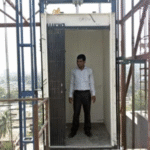A kidney transplant is a life-changing procedure that requires careful planning and the right medical facility. Choosing the best kidney transplant hospital ensures a successful surgery and smooth recovery. Patients need a hospital with an experienced team, advanced medical technology, and a strong record of positive outcomes. Let’s explore the key factors that can help you find the right hospital for a kidney transplant and ensure the best possible care and support throughout the process.
Expertise and Experience of Medical Professionals
The success of a kidney transplant heavily depends on the expertise of the medical team. The best kidney transplant hospital will have a dedicated team of nephrologists, transplant surgeons, anesthesiologists, and support staff. These specialists should have years of experience handling both routine and complex transplant cases. Patients should look for hospitals where surgeons have performed a significant number of kidney transplants. A hospital with a well-established transplant department will have specialists trained in the latest techniques, ensuring the highest chances of success. Hospitals affiliated with medical research centers or universities also have access to the latest advancements in kidney transplant procedures.
Modern Technology and Infrastructure
The hospital’s technology and infrastructure contribute significantly to the success of a kidney transplant. The best kidney transplant hospital will have advanced medical facilities like imaging systems, modern operating rooms, and specialised transplant ICUs. A transplant-specific ICU is crucial for post-operative care as it helps monitor the patient’s condition closely and prevents complications. Advanced diagnostic tools, such as high-precision CT scans and MRI machines, ensure that doctors can accurately assess the patient’s health before and after surgery. A well-equipped hospital will also have a strong infection control system, reducing the risk of post-surgery infections. Since transplant patients are more vulnerable to infections due to immunosuppressant medications, a sterile environment is essential for a smooth recovery.
Hospital’s Success Rate and Reputation
When searching for the best kidney transplant hospital, checking the hospital’s success rate is essential. A high success rate reflects the hospital’s efficiency in managing transplant procedures and patient recovery. Many hospitals publish their success rates, and patients can compare these figures to make informed decisions. A hospital with consistently high survival and recovery rates is a strong indication of its expertise. Reputation also matters when selecting a transplant hospital. Reading patient testimonials and reviews provides insights into the hospital’s care quality, medical support, and overall experience. Patients should consider feedback on pre-surgery preparation, surgical expertise, and post-operative care.
Availability of Specialised Kidney Transplant Services
A hospital that offers a wide range of kidney transplant services provides patients with better treatment options. The best kidney transplant hospital should offer:
- Living donor kidney transplants: Patients with a willing and compatible donor need a hospital specialising in living donor transplants.
- Deceased donor kidney transplants: Some patients may not have a living donor and need access to a well-managed organ donation program.
- ABO-incompatible transplants: Some hospitals have the expertise to perform transplants even when the donor and recipient have different blood types.
- Minimally invasive procedures: Hospitals using laparoscopic techniques for donor nephrectomy ensure quicker recovery and less discomfort for kidney donors.
Having multiple transplant options under one roof ensures that patients receive the most suitable treatment for their condition.
Comprehensive Pre- and Post-Transplant Care
The transplant journey does not end with surgery. The best kidney transplant hospital will provide complete pre- and post-transplant care to ensure long-term success. Pre-transplant evaluations, including blood tests, imaging, and psychological assessments, are essential to determine a patient’s eligibility for surgery. Nutrition counselling, fitness programs, and medication management also play a crucial role in preparing the patient for the procedure. Post-surgery, the hospital should have a dedicated team to monitor the patient’s progress, adjust medications, and provide regular health checkups. Since transplant patients require lifelong medical care, a hospital with a strong follow-up program can help prevent complications and ensure optimal kidney function.
Patient-Centric Approach and Support Services
A hospital that prioritises patient well-being offers more than just medical treatment. The best kidney transplant hospital will have a patient-first approach, providing emotional support, clear communication, and guidance throughout the transplant process. Dedicated transplant coordinators help patients understand the procedure, schedule appointments, and manage paperwork. A good hospital will also offer financial counseling to help patients navigate insurance claims, government aid, and payment plans. Many top hospitals provide support groups where transplant patients can connect, share experiences, and receive encouragement during recovery. Hospitals focusing on medical and emotional well-being create a comfortable environment for patients and their families.
International Patient Services and Accessibility
Selecting a hospital with international patient services is crucial for patients travelling from abroad. The best kidney transplant hospital will have dedicated departments that assist international patients with medical visas, accommodation, and language interpretation services. Accessibility is another important factor. Patients should choose a hospital that is easy to reach, whether they are traveling domestically or internationally. Proximity to an airport, transportation services, and a comfortable recovery environment significantly impact a patient’s overall experience.
Financial Transparency and Cost Considerations
Kidney transplant costs vary depending on the hospital, surgeon’s fees, and post-surgery medications. The best kidney transplant hospital will maintain financial transparency and provide precise details about treatment costs, hospital charges, and potential additional expenses. Patients should also check whether the hospital accepts health insurance or offers financial assistance programs. Some hospitals collaborate with non-profit organisations or government schemes to help patients cover transplant expenses. Before finalising a hospital, it’s advisable to have a detailed discussion with the financial team to avoid unexpected costs.
Know more about : 7 Things To Avoid For a Healthy Kidney
Conclusion
Selecting the best kidney transplant hospital is crucial for successful surgery and a healthy recovery. A hospital with experienced doctors, advanced technology, and a strong track record ensures better outcomes. Comprehensive pre- and post-transplant care, specialised services, and patient support contribute to a smooth transplant journey. Patients should also consider accessibility, financial transparency, and international services. By carefully evaluating these aspects, patients can choose a hospital that provides top-quality care and ensures the best chance of a successful kidney transplant.







